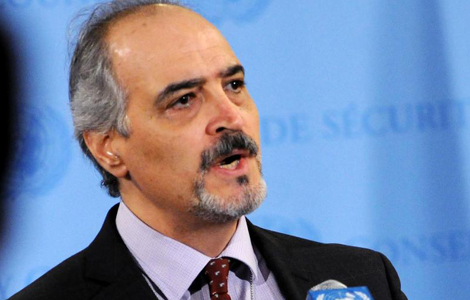China willing to aid bailout: EU leaders
Updated: 2012-01-28 09:29
By Fu Jing (China Daily)
|
|||||||||||
DAVOS, Switzerland - The leaders of Denmark and Finland said on Friday that China has showed a willingness to contribute to global efforts to bail out debt-ridden European countries. However, a senior Chinese policy adviser said there should be preconditions.
Speaking at the World Economic Forum annual meeting in Davos, Helle Thorning-Schmidt, prime minister of Denmark, and Finnish Prime Minister Jyrki Tapani Katainen stressed the need for China and the European Union to cooperate to help struggling nations.
Both sides are "in the same boat", said Katainen. "China will suffer from the worsening economic situation in Europe, and vice versa, so it would be good for China to use part of its foreign reserves surplus through (the International Monetary Fund) to finance countries in trouble.
"This would not be free. It would always be conditional," he said, before describing the IMF as a "good and trustworthy" organization for China to invest in.
Thorning-Schmidt, whose country currently holds the rotating six-month EU presidency, vowed to use the opportunity to "increase cooperation" with China, adding that the country is "willing to be part of the solution".
Li Daokui, a scholar close to China's top decision-makers, said Beijing has never changed its policy to participate in the financial rescue, but insisted: "There need to be conditions". The first is that the EU must devise its own effective rescue package, said the Tsinghua University economics professor and policy adviser to China's central bank. The second is that the efforts are multilateral, not just bilateral.
"China understands we are in a multi-polar era, meaning the world is not led by the US and China, so other global players should have equal chance to solve the global challenge," he said. "In this context, China will join in IMF process."
However, the process will be complicated, he said, adding that if "emerging economies such as China, India and Russia put (in) money the IMF should continue to reform its governance and voting rights".
European countries currently control more than 40 percent of the voting rights at the IMF.
"It's reasonable for Europe to show a willingness (to cede voting rights to creditors)," said the professor. "(China) can offer help, but we also need promises from the European side. They cannot ask for help without taking action to help themselves or reform (the IMF)."
While some in Europe are unhappy at the prospect of borrowing money from emerging states, some Chinese people are also concerned about the reality of developing countries rescuing wealthy ones.
After the debt crisis hit in May 2010, the EU set up the European Financial Stability Fund, which will become a permanent rescue fund by the middle of this year. Head of the fund Klaus Regling visited China, Japan and other wealthy countries to solicit help this week, but failed to obtain any firm agreements.
The IMF recently promised to expand its resources available to European countries in debt and warned that the worsening situation could affect the global economic outlook this year.
Song Zhe, who until about a month ago was China's ambassador to the EU, said: "China will never be absent when it comes to global efforts to rescue debt-ridden European countries."
China and the EU will hold a delayed annual leaders summit in February. It is expected that the rescue plan will be on the agenda.
In the meantime, Finland's Katainen said China and Europe should try to further boost open trade and bolster common ground on global policy. Both sides should continue to improve cooperation and coordination within the United Nations framework, he added.
Thorning-Schmidt added that she was also confident ahead of Monday's informal summit for European leaders that debt-affected countries will escape the crisis.
"We are taking (the) right decisions now in terms of the countries which have large debts, and (are) strengthening our fiscal disciplines," she said. "After implementing them, the confidence and trust will start to pick up."
Related Stories
Davos delegates stress business innovation to avoid Kodak faliure 2012-01-26 11:08
Davos grapples with bleak forecast 2012-01-27 08:44
Singapore PM says China's economic outlook optimistic 2012-01-27 09:43
Eurozone debt deal welcomed 2011-10-28 07:22
Hu seeks eurozone stability 2011-11-03 07:21
World stocks at 15-month low on Greek default fears 2011-10-04 16:59
Hot Topics
Kim Jong-il, Mengniu, train crash probe, Vaclav Havel, New Year, coast guard death, Internet security, Mekong River, Strait of Hormuz, economic work conference
Editor's Picks

|

|

|

|

|

|







